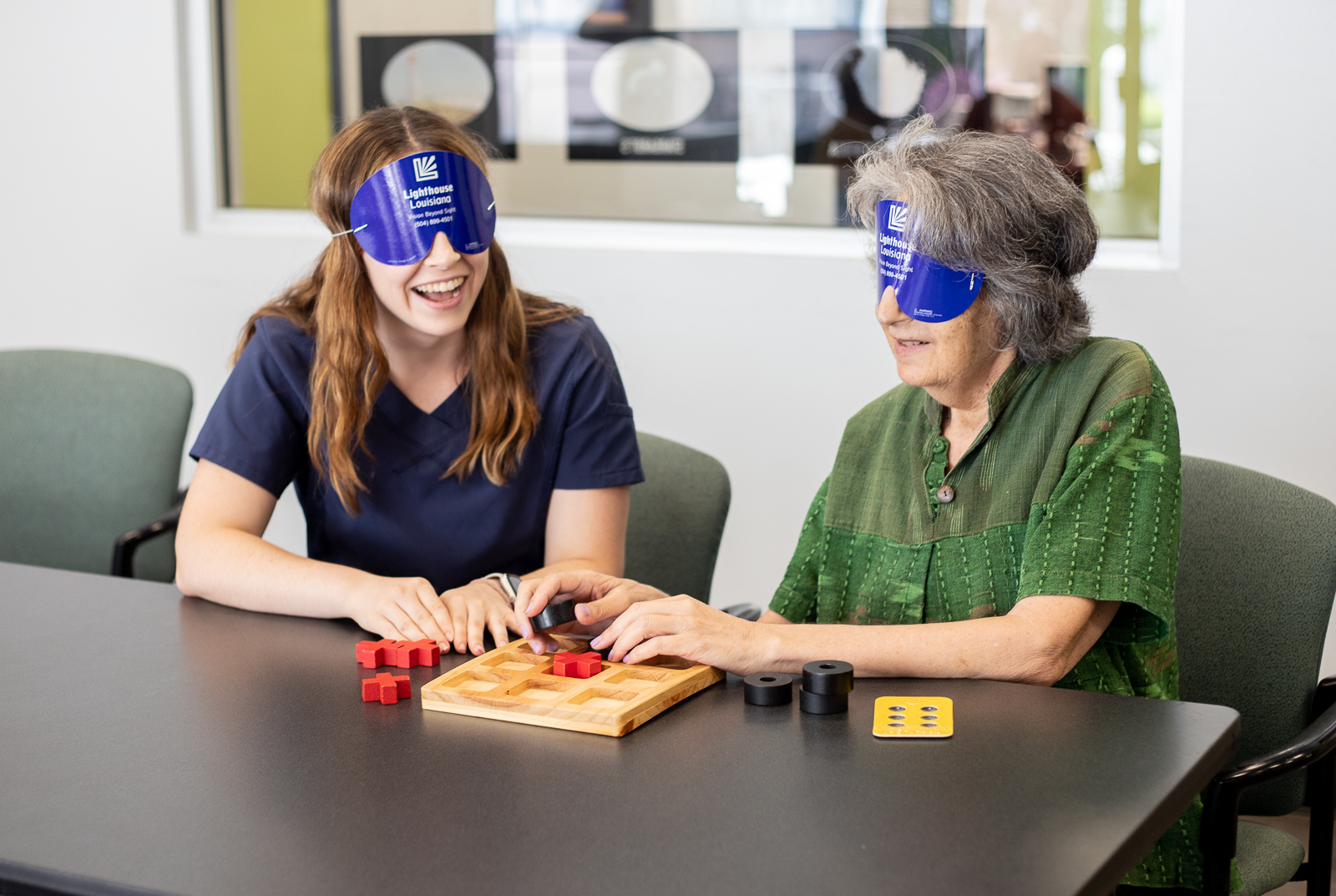Inaugural Course in Blindness Rehabilitation Equips OTs With In-demand Skills
 An OT plays tactual tic-tac-toe with a client who is blind so she can learn to engage in leisure tasks with friends and family.
An OT plays tactual tic-tac-toe with a client who is blind so she can learn to engage in leisure tasks with friends and family.
Applications are now open for the Low Vision Rehabilitation Graduate Certificate program’s first course in blindness rehabilitation. This program elective (3 credit hours) will be offered in the upcoming fall semester as part of the Department of Occupational Therapy’s expanding roster of specialized educational opportunities.
“Foundations in Blind Rehabilitation” (listed as “OT 692 - Special Topics in OT” in the UAB Graduate Catalog) aims to equip occupational therapists (OTs) with the skills they need to help clients who are blind optimize their occupational participation and performance.
Right now, few OTs have this training, creating a need and an opportunity for practitioners who are interested in working with individuals without residual vision.
“There are many resources to help OTs to understand low vision and the strategies to optimize a client’s existing vision, but this course is one of the first university courses designed to give OTs the tools needed to enhance function for clients with little to no usable vision,” said Jenice Heck, LOTR, MMC, course instructor and an adjunct professor in the UAB Department of Occupational Therapy.
Heck was born with Leber congenital amaurosis, a rare genetic disease that primarily affects the retina, and is one of the few blind OTs in the United States. She noted that while OTs typically have effective strategies for clients with low vision, those skills often don’t transfer well to individuals without usable vision.
 An OT orients a client who is blind to controls on a stove marked with tactual indicators.
An OT orients a client who is blind to controls on a stove marked with tactual indicators.
‘We live in a visual world.’
To put this into better perspective, Heck said, “Over 50% of the brain is dedicated to processing visual input. So, what happens when vision is removed from the equation? Foundations of Blind Rehabilitation will explore the resources and strategies for successful interventions and outcomes for this population.”
Beth Barstow, PhD, OTR/L, SCLV, FAOTA, director of the Low Vision Rehabilitation Graduate Certificate program and associate professor of occupational therapy, noted that Heck’s specialized knowledge will allow her students to gain valuable skills and fill a significant gap in care for individuals who are blind.
“Jenice is an innovative OT who has skills in blindness rehabilitation that few possess,” Barstow said. “UAB is very lucky to have her join our team.”
Innovative solutions for people without usable vision
Heck, who is chief operating officer at Lighthouse Louisiana in New Orleans, said the course is designed to challenge learners’ clinical thinking skills, provide insight into the needs of people who are blind, and stimulate students’ creativity so they can develop innovative solutions for these clients.
“The ultimate objective [for students] taking the course is to assist clients in becoming comfortable in their own skin, so they can live meaningful lives without depending on their vision. It’s pure OT at its finest,” she said.
Enroll in Foundations in Blind Rehabilitation
If you’re interested in building expertise in blindness rehabilitation, you can take the course as an elective in the Low Vision Rehabilitation Graduate Certificate program (application deadline: August 1) or apply to the UAB Graduate School as a non-degree seeking student (application deadline: August 14).